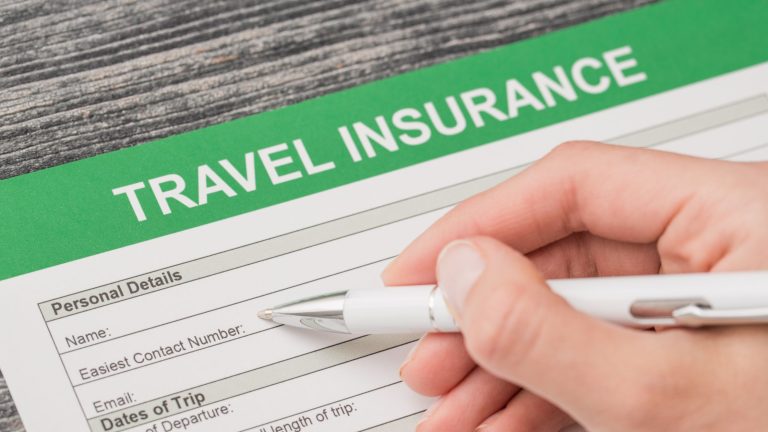Does Travel Insurance Cover Flight Cancellations?
Traveling is an exciting adventure, but sometimes, life throws unexpected challenges your way. Imagine this: you’re all set for a dream vacation, bags packed, passport ready, and then you get the dreaded notification—your flight is canceled.
What happens next? Can travel insurance step in to save the day?
Let’s dive into the details and clear up any confusion about flight cancellations and travel insurance.
What is Travel Insurance?
Before we dive into cancellations, let’s first understand what travel insurance is. Essentially, travel insurance is a safety net for your journey. It can cover unexpected expenses like medical emergencies, lost luggage, trip delays, or cancellations. But does it cover flight cancellations specifically? The answer depends on the policy you choose.
Does Travel Insurance Include Flight Cancellations?
The Short Answer: It Depends
Not all travel insurance policies cover flight cancellations. Coverage varies by provider and policy type. Some plans offer cancellation protection as a standard feature, while others require you to purchase it as an add-on.
The key is to understand why the flight was canceled. Travel insurance typically covers cancellations due to specific reasons, such as:
- Severe weather conditions.
- Airline strikes or operational issues.
- Illness, injury, or death of the insured traveler or a family member.
- Natural disasters at your destination.
- Jury duty or legal obligations.
However, cancellations for reasons like changing your mind about the trip or missing your flight due to oversleeping are usually not covered.
Common Types of Cancellation Coverage
Travel insurance policies offer various types of cancellation coverage. Let’s break them down:
1. Trip Cancellation Insurance
This is the most common type of coverage. It reimburses you for prepaid, non-refundable trip expenses if you cancel your trip for covered reasons.
Example:
Your child falls ill the day before your trip, and your doctor advises against traveling. With trip cancellation insurance, you can recover the costs of your flight and other bookings.
2. Cancel for Any Reason (CFAR)
CFAR is an optional upgrade that offers greater flexibility. As the name suggests, it allows you to cancel your trip for any reason and get partial reimbursement (usually 50-75%).
Example:
You decide not to travel because of rising political tensions at your destination. CFAR coverage ensures you don’t lose your entire investment.
What Does Travel Insurance Typically Exclude?
Travel insurance has limitations, and knowing them is just as important as knowing what’s covered. Some common exclusions include:
- Voluntary cancellations (e.g., you simply decide not to travel).
- Cancellations due to pre-existing medical conditions (unless covered under a specific clause).
- Events related to civil unrest or government-imposed travel bans (unless specified).
- Missed flights due to personal negligence, like arriving late at the airport.
Tip:
Always read the policy details carefully to understand exclusions and avoid surprises.
How to Choose the Right Travel Insurance for Cancellations
1. Understand Your Needs
Are you booking a non-refundable ticket? Traveling during a season prone to disruptions, like hurricane season? Your circumstances should guide your choice.
2. Compare Policies
Use online comparison tools to evaluate policies from different providers. Look specifically for terms like “trip cancellation,” “CFAR,” and “emergency assistance.”
3. Check the Fine Print
Read the policy documents thoroughly. Look for details about covered cancellation reasons, reimbursement limits, and exclusions.
4. Ask Questions
If something isn’t clear, reach out to the insurer’s customer service. Ask questions like:
- “Does this policy cover cancellations due to airline strikes?”
- “How much reimbursement can I expect if my flight is canceled?”
Steps to Claim Travel Insurance for Flight Cancellations
If your flight gets canceled and you believe it’s covered by your policy, here’s what to do:
1. Contact Your Airline First
Airlines often offer compensation or rebooking options for canceled flights. This might save you the hassle of filing an insurance claim.
2. Notify Your Insurer Promptly
Inform your travel insurance provider as soon as possible. Provide all necessary details, including:
- Flight information.
- Reason for cancellation.
- Proof of expenses (e.g., booking receipts).
3. Submit Required Documentation
Your insurer will likely ask for documentation, such as:
- The cancellation notice from the airline.
- Medical certificates (if applicable).
- Receipts for prepaid expenses.
4. Follow Up
Claims can take time to process. Stay in touch with your insurer for updates and ensure you’ve submitted all required documents.
Is Travel Insurance Worth It for Flight Cancellations?
If you’re asking yourself, “Do I really need travel insurance?”, think about this: Can you afford to lose the money spent on non-refundable bookings if things go wrong? For most travelers, the peace of mind alone is worth the investment.
Final Thoughts: Protect Your Travels
Flight cancellations can be frustrating and costly, but travel insurance can ease the financial burden. The key is to choose a policy that fits your needs and provides the right level of coverage.
Have you ever faced a flight cancellation? What did you do to manage the situation? Feel free to share your experience in the comments below. Let’s help each other make informed decisions for smoother travels!






